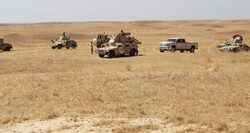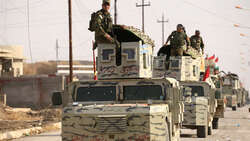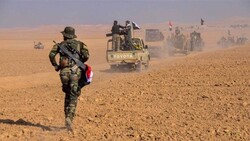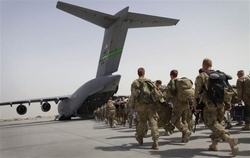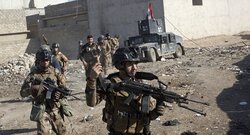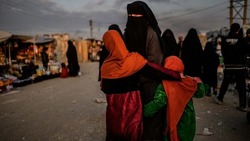Kurdish Official Lists ISIS and Climate Change as Top Threats
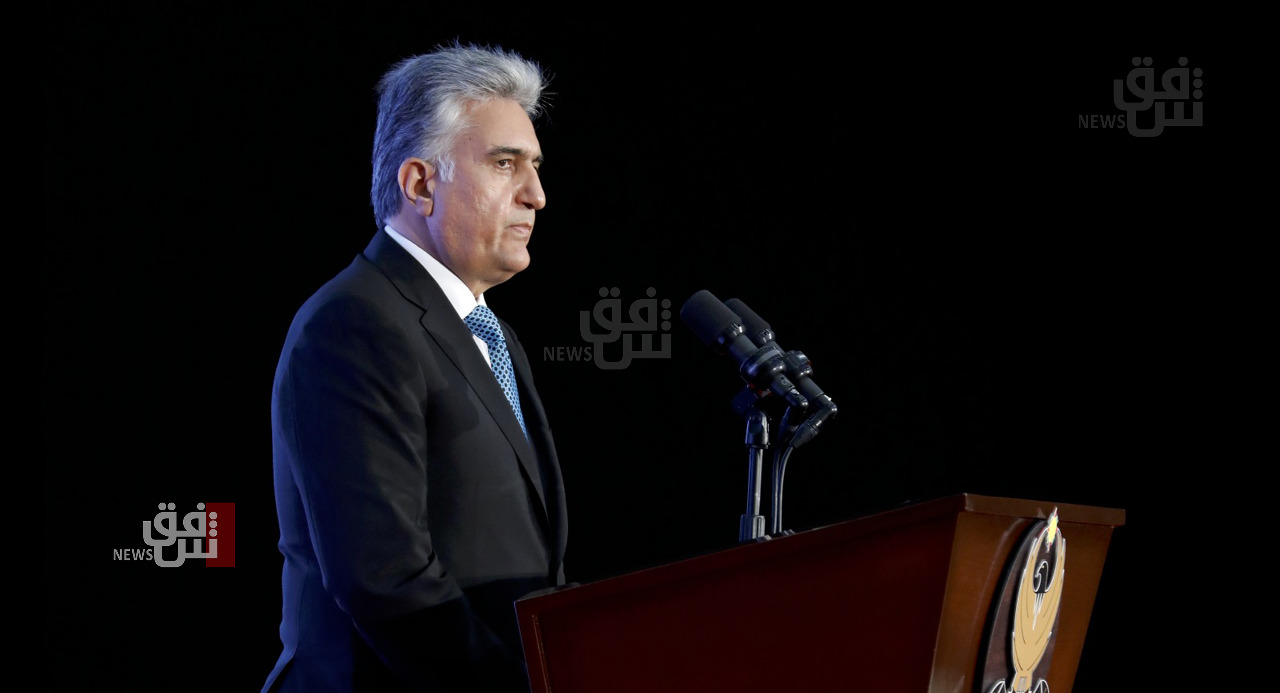
Shafaq News/ More than five years since the Iraqi government declared victory over ISIS, a senior Kurdish official says the terrorist group is among the top threats facing the region. Alongside ISIS, Rebar Ahmed, minister of interior in the Kurdistan Regional Government (KRG), listed climate change and the resource scarcities and migration it would trigger as a critical challenge.
ISIS Ideology Survives
Ahmed cautioned that while ISIS has been diminished militarily, there is a possibility that it could regroup, as its extremist ideology survives. Noting that it likely will take “decades to normalize the situation,” the minister added: “To win the war is much easier than to build the peace.” Ahmed spoke at an event jointly hosted by the U.S. Institute of Peace and the American University of Kurdistan in Washington on June 14.
In a discussion with Sarhang Hamasaeed, USIP’s director of Middle East Programs, Ahmed said the Kurdistan Workers’ Party (PKK) is another top threat facing the semi-autonomous Kurdistan Region in northern Iraq. The United States designated the PKK a terrorist organization in 1997.
Addressing Security Challenges
Years of U.S. support to the peshmerga — the Kurdish military forces — have been crucial in the war against ISIS. Ahmed said it was important that such support continue. On September 21, 2022, U.S. Assistant Secretary of Defense for International Security Affairs Celeste Wallander signed an updated memorandum of understanding with KRG Minister of Peshmerga Affairs Shoresh Ismail Abdulla that extended U.S. support to the peshmerga for Defeat-ISIS operations for the next four years.
While providing this support, the United States has encouraged its Kurdish partners to institute reforms within the peshmerga. Ahmed provided an update on that process noting: “We are in a very good position regarding the reform. … We are very optimistic regarding the unification of peshmerga forces.”
Ahmed said collaboration between the governments in Erbil and Baghdad is equally important to tackle security challenges. The Iraqi defense ministry has set aside money in its budget for two joint brigades that combine Iraqi and peshmerga forces to fight ISIS. Ahmed said there is “good understanding” between Baghdad and Erbil on the importance of conducting joint operations against the militants.
Climate Challenge
Besides security threats, Ahmed said the Kurdistan Region faces another challenge: climate change. “In Iraq in general and in Kurdistan we are suffering from climate change,” the minister said. The region increasingly suffers from floods in winter and a lack of water in summer. Groundwater levels have also fallen precipitously, especially in Erbil.
Iraqi officials have for years complained that their neighbors, particularly Iran and Turkey, are restricting the flow of water in the Tigris and Euphrates rivers. Noting the dwindling river water supply and paucity of water resources in the south of Iraq, Ahmed predicted climate change will produce a wave of migrants who will pour into the Kurdistan Region. The region, already home to close to a million refugees and internally displaced people from the conflicts in Iraq and Syria, will struggle to shoulder the burden of additional climate migrants, Ahmed said.
The Fate of Refugees
On October 9, 2020, the Iraqi government and the KRG signed the Sinjar Agreement. The agreement seeks to normalize the situation in Sinjar, the war-ravaged district in Iraq’s northern Nineveh governorate and the site of a genocide committed by ISIS against the Yazidi (Ezidi) population. One of the goals of the agreement, Ahmed said, was to allow those who were forced to flee atrocities committed by ISIS to return to their homes.
Ahmed said the KRG’s goal is not to assimilate the internally displaced Iraqis and Syrian refugees in the Kurdistan Region, but to encourage them to return to their homes. Most, however, prefer to stay in camps. Arguing against integrating these people — mostly Yazidis and Christians — with the local communities, Ahmed said doing so would disrupt the demographics of the region, something the KRG vehemently opposes. To this day, the region lives with the scars from the Arabization policy practiced by Saddam Hussein’s regime that displaced hundreds of thousands of ethnic Kurds, Turkomans and Assyrians from northern Iraq and replaced them with Arabs relocated from central and southern Iraq.
Further, Ahmed said, integrating the refugees would result in a “vacuum” in places like Nineveh Plains and Sinjar from where these people fled. Calling integration “a wrong policy,” Ahmed said, “We have to provide security, safety, services, and hopes to these people to go back to their homeland. This is the right way.”
However, Ahmed said that by refusing to relinquish control of Sinjar and preventing people from returning, the PKK has become the main stumbling block in the implementation of the Sinjar Agreement.
Democracy and Human Rights
Asked by Hamasaeed for his assessment of Iraq’s transition toward democracy 20 years since Saddam’s ouster in a U.S.-led invasion, Ahmed listed the strong support for Iraq’s 2005 constitution and said a democratic Iraq should serve as an example to the Middle East. However, he contended that “it is not easy to turn just by changing the regime from a dictatorship to a democracy.” He added: “It means that we have to change the mentality of the decisionmakers, even the population itself.”
USIP’s Sarhang Hamasaeed and Kurdistan Regional Government Minister of Interior Rebar Ahmed discuss the challenges facing the Kurdistan Region and Iraq, June 14, 2023.
USIP’s Sarhang Hamasaeed and Kurdistan Regional Government Minister of Interior Rebar Ahmed discuss the challenges facing the Kurdistan Region and Iraq, June 14, 2023.
Ahmed said the constitution has not been properly implemented. More specifically, no resolution has been achieved between Baghdad and Erbil on the fate of the disputed territories of northern Iraq. Article 140 of the constitution defines the disputed territories as areas Arabized during Ba’ath Party rule.
Iraq witnessed widespread protests between 2019 and 2021 as citizens took to the streets against corruption, high unemployment, political sectarianism and a lack of public services. Ahmed said while no services are still being provided in many provinces in Iraq, the Kurdistan Region stands out as an exception. The KRG has used revenue from the sale of gas and oil to provide services to residents. “We are totally supporting democracy and delivering services to other parts of Iraq,” said Ahmed.
The Kurdistan Region is not immune to corruption, however. Asked whether any prominent figures had been prosecuted for corruption, Ahmed said fighting corruption is a top priority for KRG Prime Minister Masrour Barzani, but it has not been easy. “Everybody knows that reform has a large number of enemies,” he said.
Ahmed pushed back against criticism of the KRG’s record on human rights and freedom of expression. No country has a perfect record on human rights or democracy, he said. The minister reiterated Barzani’s dedication to democracy, protecting human rights and providing a better environment for the freedom of expression.
Ahmed said the KRG would welcome discussions with its partners on these issues and is seeking training and support from the United States in this regard. “We are open to any kind of cooperation, coordination, receiving consultants and talking with our friends,” the minister said, adding that the Kurdistan Region provides “one of the best environment[s] for everybody in our region.” As evidence he cited the large number of displaced persons hosted by the Kurdistan Region. “These are values we believe in,” he added, referring to the local culture of coexistence and support for democracy and human rights.
Support for Al-Sudani
In Baghdad, Iraqi Prime Minister Mohammed Shia al-Sudani heads a coalition of Shias, Sunnis and Kurds. Al-Sudani was elected after almost a year of political gridlock that followed elections on October 10, 2021.
While acknowledging that al-Sudani is under pressure from various quarters, Ahmed said the KRG has a good relationship with the prime minister. “We are supporting the new cabinet,” said Ahmed, adding he was hopeful that progress would be made on implementing the constitution and drafting an oil and gas law, a key sticking point between Baghdad and Erbil.
Relations with Neighbors
On the challenge posed by Iran, Ahmed said that through cooperation between Baghdad and Erbil mutual concerns can be jointly addressed with Iraq’s neighbor.
Iraq played an important role in the recent resumption of diplomatic relations between Iran and Saudi Arabia. The Iran-Saudi deal was brokered by China, a country that is playing an increasingly prominent role in the region. Ahmed said that while the Middle East has historically been an area of competition for superpowers, regional rivalries have a greater impact on the situation there.
Asked by Hamasaeed about the concerns raised by some that de-escalation of regional tensions would lead to negative attention being focused on the Kurds, Ahmed said the Kurdistan Region supports normalization of relations between regional powers as well as the stability that it would bring, but de-escalation should not come at the cost of others’ interests. With security, he said, “we believe there will be economic progress.”
